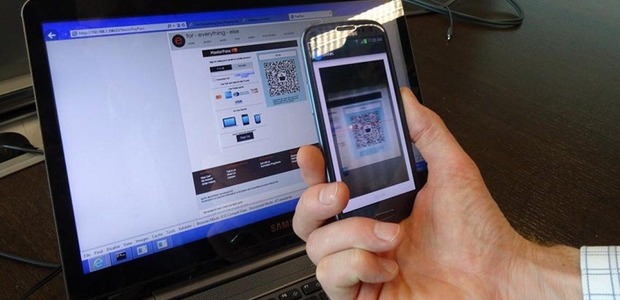advertisement
Mastercard to roll out a QR Payment code for the Kenyan Market early next year
Known as the Masterpass QR, Mastercard plans to roll-out the new technology in Kenya starting next year and has already…

Known as the Masterpass QR, Mastercard plans to roll-out the new technology in Kenya starting next year and has already partnered with EcoBank to have the solution available in its 33 bank branches across Kenya.
In a meet-up with the Vice President and Area Business Head for East Africa, Chris Bwakira, Mastercard said that the move by seeks to drive digital inclusion across Africa. Mastercard expects this mode of payment to take off as the cost involved is way lower compared to setting up Point of Sales machines (PoS).
The QR code technology hasn’t taken off as banks and other financial institutions had expected but Mastercard believes that the recent conditions of demonetizations and increase in digital payments will act as a catalyst and push such modes of payments.
advertisement
Despite the fact that these payments solutions will see competition from wallet players, unified payments interface and cards, Mastercard expects the QR code payments system to take off as still a majority of transactions are still in cash and that spells an opportunity.
In addition to that , Mastercard through its MasterCard’s Lab for Financial Inclusion seeks to connect 500 million previously excluded from formal financial services through public-private partnerships. By incubating ideas, Mastercard takes proven innovation processes and works hand-in-hand with people on the ground.
In Rwanda, for instance Mastercard is focused on driving innovation and as a result the company built on their long-standing partnership with Guaranty Trust Bank Rwanda Ltd (GTBank Rwanda)to introduce a suite of digital payment solutions. These solutions were aimed at extending the demand for safe and convenient payment solutions.
advertisement
One of Mastercard’s most outstanding take-offs in the region for 2016 was the launch of HomeSendin collaboration with the Commercial Bank of Ethiopia (CBE). The service brings remittance services to more than 100 million people in the country by allowing consumers to send funds directly to any mobile number in Ethiopia.
This was followed by Mastercard’s Impact of Innovation study where it was revealed that almost 90% of consumers in Kenya use their mobile phones more than any other device. Preference for mobile payments remains very high in Kenya at 87%, with 96% of Kenyans using their smartphone as their primary device according to the Survey. Laptop penetration, currently at 90%, is significantly higher than the penetration of traditional desktop computers, which is sitting at 70%.
“Kenya has a high rate of adoption when it comes to mobile technology. This, coupled with the positivity towards digitalization displayed in this research, points to a deep understanding by Kenyans of the positive socio-economic effects which innovation and digitalization can have on the development of the country’s economy,” Bwakira explains.
advertisement
In Kenya and across East Africa, Mastercard is listening to consumers about what types of innovation they want to see more of – it’s extremely exciting to see the pace and appetite for change in Kenya and across various markets including Rwanda, Tanzania, Uganda, Ethiopia and Djibouti.
Working closely with governments, regulators, financial institutions, merchants, local businesses and consumers, Bwakira aims to continue developing economies that are less dependent on cash.